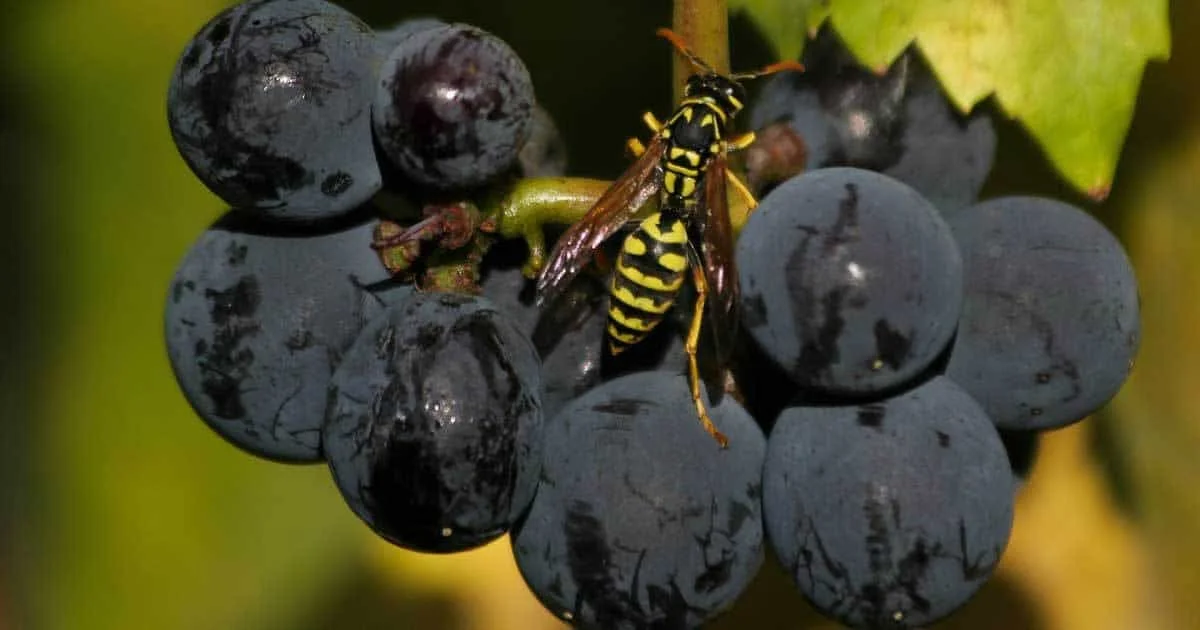Wasps are common insects found throughout Canada, and understanding their diet is essential for effective pest control. Whether you’re dealing with yellow jackets, hornets, or paper wasps, knowing what wasps eat can help you manage their presence around your home or business. At IPM Pest Solutions, we provide expert advice and solutions to keep wasp populations under control while maintaining ecological balance.
Understanding the Wasp Diet What Do Wasps Eat?
Wasps are primarily carnivorous, meaning they feed on other insects, but their diet varies depending on the species and life stage. Adult wasps mainly consume sugary substances like nectar, fruit juices, and honeydew produced by aphids. However, they also hunt other insects to feed their larvae.
Common Food Sources for Wasps
- Insects and Pests – Many wasps, including yellow jackets and hornets, prey on insects such as mosquitoes, flies, caterpillars, and spiders. This makes them natural pest controllers in gardens and farms.
- Sugary Substances – Adult wasps are attracted to sweet foods like ripe fruits, soda, and flower nectar. This is why they often buzz around picnics and garbage bins in Toronto, Vancouver, and other urban areas.
- Protein-Based Foods – Some wasps, like hornets, scavenge for meat, including dead animals, pet food, and even barbecue leftovers. This is why they are frequently found near outdoor dining areas.
- Aphid Honeydew – Certain wasps feed on the sticky substance secreted by aphids, which can sometimes lead them to infest gardens in Calgary and Edmonton.
What Do Wasps Eat Do Wasps Eat Mosquitoes?
Yes! Many wasp species, particularly yellow jackets, hunt mosquitoes and other flying insects. This makes them beneficial in reducing mosquito populations, especially in Ontario and Quebec, where these pests are prevalent. However, wasps can also become a nuisance when they build nests near homes.
Do Wasps Eat Spiders?
Some wasps, like the spider wasp, specialize in hunting spiders. They paralyze their prey and bring it back to their nests to feed their larvae. If you notice fewer spiders around your property in Winnipeg or Halifax, wasps might be the reason.
Do Wasps Eat Bees?
Unfortunately, some wasps, particularly hornets, attack honeybees. They can decimate entire bee colonies, which is concerning for local beekeepers in British Columbia and Alberta. Protecting beehives from wasp invasions is crucial for maintaining healthy pollinator populations.
| what does the wasp eat |
Despite their aggressive nature, wasps have several natural enemies. Understanding wasp predators can help in managing their populations naturally.
- Birds – Species like woodpeckers, magpies, and starlings feed on wasps and their larvae.
- Bats – Some bats in Canada consume wasps, especially during dusk when wasps are less active.
- Spiders – Certain spiders, like orb-weavers, catch and eat wasps in their webs.
- Other Insects – Dragonflies and robber flies are known to prey on wasps.
Are Wasps Good for Anything?
While wasps can be a nuisance, they play a vital role in the ecosystem.
- Natural Pest Control – By feeding on mosquitoes, aphids, and caterpillars, wasps help keep pest populations in check.
- Pollination – Some wasps assist in pollinating flowers, though not as effectively as bees.
- Decomposition – Scavenger wasps help break down dead insects and animals, contributing to nutrient recycling.
How to Manage Wasps Around Your Home
If wasps are becoming a problem in Ottawa, Montreal, or other Canadian cities, here are some effective strategies:
Homemade Wasp Traps
Creating wasp traps homemade is an easy way to reduce their numbers. A simple trap can be made using a plastic bottle filled with sugar water or best wasp bait like fruit juice.
Natural Wasp Repellents
- Peppermint oil – Wasps dislike strong scents, making peppermint an effective deterrent.
- Vinegar and water spray – A mixture can help keep wasps away from patios and decks.
- Planting wasp-repelling herbs – Mint, eucalyptus, and citronella can discourage wasps from nesting nearby.
Professional Wasp Removal
For severe infestations, especially in Vancouver, Toronto, or Calgary, contacting a pest control expert like IPM Pest Solutions ensures safe and effective removal without harming beneficial insects.
How Long Can a Wasp Survive Without Food?
Wasps can survive for several days without food, but they become more aggressive when hungry. Ensuring proper waste management and sealing food sources can reduce their presence.
Balancing Wasp Control and Ecological Benefits
Understanding What Do Wasps Eat and their role in nature helps in managing them effectively. While they can be beneficial by controlling pests like mosquitoes and aphids, they can also pose risks when they nest near homes.
If you’re dealing with a wasp problem in Canada, trust IPM Pest Solutions for expert advice and eco-friendly pest management solutions. Whether you need wasp traps homemade tips or professional removal, we’re here to help keep your property safe and wasp-free.
By taking proactive steps, you can enjoy a pest-free environment while preserving the natural balance of your local ecosystem.


